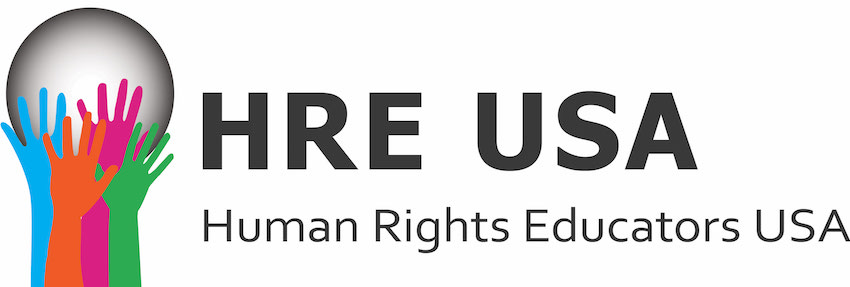J. Paul Martin, a pioneer in human rights education, died suddenly on January 7 from pneumonia complicated by Covid.
Born in England in 1936, as a young man Paul Martin served as an officer in the British Army and took vows with the Missionary Oblates of Mary Immaculate (OMI). He was educated at the International Roman Scholasticate, where he attended the Angelicum, now called the Pontifical University of St. Thomas Aquinas, earning Licentiates in Philosophy and Theology. Following his ordination to the priesthood in 1964, he was assigned to the new University of Botswana, Lesotho, and Swaziland,
After three years in Lesotho, Martin earned his doctorate in philosophy at Columbia University, where he remained for most of his long career. Although he left the priesthood, his deeply ethical perspective and commitment to social justice influenced all his work. Much of his teaching and writing explored the interface between religion and human rights. He regarded the modern international human rights movement as a needed alternative to the amorphous separation of church and state because it “calls not merely for state neutrality but also for state engagement with religion and thus for national and international institutions able both to protect the rights associated with freedom of religion and to minimise inter-religious discrimination and conflict.” In religion as in other aspects of life, he saw human rights education (HRE) as integral to the state’s responsibility to “ensure that those rights are known by all and not impinged upon by any social forces within its jurisdiction.”[1]
As well as a distinguished scholar, Paul Martin was an academic innovator. In 1978 he and law professor Louis Henkin founded the Center for the Study of Human Rights (CSHR) at Columbia University, which Martin directed for 29 years. He pioneered the study of human rights as an interdisciplinary field, including law, public health, journalism and policy studies, as well as the humanities and social sciences. Today the Center – now the Institute for the Study of Human Rights (ISHR) – offers an undergraduate major and a Masters program and is recognized as a leading global center for human rights studies. Colleague Kristina Eberbach affirmed, “Paul gave HRE academic credibility.” After stepping down as director at ISHR, Paul became the Director of the Human Rights Program at Barnard College for twelve years until his retirement.
Martin saw human rights education as a transformative essential for all social change, a vision he extended beyond the university. In 1989 he initiated the Human Rights Advocates Program, which brings human rights defenders from the Global South to study at Columbia and make contacts needed to support their work at home. Now in its 35th year, the program has 350 global alumni doing human rights work all around the world. Throughout his years at the Institute, Paul himself traveled extensively in the Global South, helping to establish programs in human rights education in Ghana, Burkina Faso, Uganda, Brazil, Liberia, Haiti, and Ecuador and elsewhere.
A devoted classroom teacher, thesis advisor, and mentor to countless Advocates, undergraduate, and MA students, Professor Martin supported many throughout their careers. Former advisee and co-author Snigdha Dutt praised his collaborative spirit, “He prized his students and was eager to learn from and be inspired by them. At all times he put students’ well-being and learning first.”
Paul Martin is survived by his wife of 52 years, Roberta; his son, Christopher; and his daughter, Lizzy, as well as Christopher’s wife, Darina Spasova, and two young granddaughters. In a letter to his colleagues and students, his children remember him as a “crack cricketer in his youth, tinkerer, self-taught sailor, and a deeply religious man–he lived a full life. In all things, our father aimed to improve lives and foster unity by helping people see each other with respect, patience, and empathy.”
In what was perhaps his final publication, “Evaluating the Past and Charting the Future of Human Rights Education,”[2] Martin continues his life-long approach to HRE: both practical and visionary, both local and universal, and always humanistic. He emphasizes the critical need for research in HRE and asks “If more HRE research is needed, what is needed and who should do it?” His response is a challenge for all engaged in HRE, especially teacher-training institutions, to integrate “both the substantive and the pedagogical dimensions into their teaching and research.” For the future he calls for “an international institutional network of actors and researchers.” He would, no doubt, be gratified to know that just such an organization was established last year, the International Association for Human Rights Education (IAHRE).[3]
Written by HRE USA founding member, Nancy Flowers, February 2024
[1] Martin, J (2015). Whose god? A Human Rights Approach. Nations under God: The Geopolitics of Faith in the Twenty-First Century, retrieved from https://www.e-ir.info/2015/12/23/whose-god-a-human-rights-approach/
[2] Martin, J., & Dutt, S. (2023). Evaluating the Past and Charting the Future of Human Rights Education. International Journal of Human Rights Education, 7(1). Retrieved from https://repository.usfca.edu/ijhre/ vol7/iss1/6

